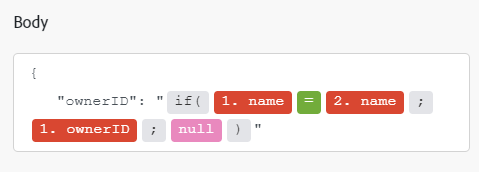Microsoft Office 365 Excel modules
In an Adobe Workfront Fusion scenario, you can automate workflows that use Microsoft 365 Excel, as well as connect it to multiple third-party applications and services.
For instructions on creating a scenario, see the articles under Create scenarios: article index.
For information about modules, see the articles under Modules: article index.
Access requirements
You must have the following access to use the functionality in this article:
| table 0-row-2 1-row-2 2-row-2 3-row-2 layout-auto html-authored no-header | |
|---|---|
| Adobe Workfront package | Any |
| Adobe Workfront license |
New: Standard Or Current: Work or higher |
| Adobe Workfront Fusion license** |
Current: No Workfront Fusion license requirement. Or Legacy: Workfront Fusion for Work Automation and Integration |
| Product |
New:
Or Current: Your organization must purchase Adobe Workfront Fusion. |
For more detail about the information in this table, see Access requirements in documentation.
For information on Adobe Workfront Fusion licenses, see Adobe Workfront Fusion licenses.
Prerequisites
To use Microsoft office 365 Excel, you must have a Microsoft account.
Microsoft Office 365 Excel API information
The Microsoft Office 365 Excel connector uses the following:
Connecting the Office 365 Excel service to Workfront Fusion
For instructions about connecting your Office 365 Excel account to Workfront Fusion, see Create a connection to Adobe Workfront Fusion - Basic instructions
Microsoft Office 365 Excel modules and their fields
When you configure Microsoft 365 Excel modules, Workfront Fusion displays the fields listed below. Along with these, additional Microsoft 365 Excel fields might display, depending on factors such as your access level in the app or service. A bolded title in a module indicates a required field.
If you see the map button above a field or function, you can use it to set variables and functions for that field. For more information, see Map information from one module to another.

Workbook
Download a Workbook
This action module downloads the content of the specified Excel workbook.
Search Workbooks
This action module searches for Excel workbooks.
Watch Workbooks
This trigger module starts a scenario when a workbook is created.
Worksheet
Add a Worksheet
This action module creates a new worksheet within the selected workbook.
Add a Worksheet Row
This action module adds a new row to the selected worksheet.
Delete a Worksheet Row
This action module deletes a row from a worksheet.
List Worksheet Rows
This action module retrieves a list of rows in the specified worksheet.
List Worksheets
This action module retrieves a list of worksheets in the specified workbook.
Update a Worksheet Row
This action module updates an existing worksheet row.
Watch Worksheet Rows
This trigger module starts a scenario when a new row is added to the sheet.
Table
Add a table
This action module creates a table element within the Excel worksheet.
Add a table row
This action module modifies an existing table.
Delete a table
This action module deletes the specified table from an Excel worksheet.
Get a Table
This action module retrieves metadata for the specified table.
List table rows
This search module retrieves a list of all table rows in a workbook.
List tables
This search module retrieves a list of all table objects.
Update a table
This action module updates an existing table.
Watch table rows
This trigger starts a scenario when a new row is added to a table.

Other
Make an API Call
This action module allows you to make a custom API call.
Select the HTTP request method you need to configure the API call. For more information, see HTTP request methods.
Retrieve data
This action retrieves data from the defined worksheet range, and returns a bundle for each row.
